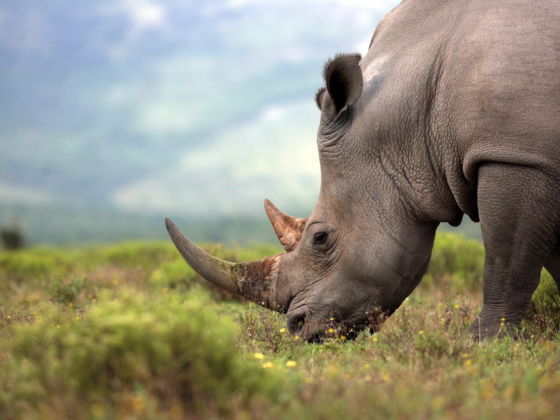Although China has had a ban in place for 25 years prohibiting the import or export of rhino and tiger parts, it appears the country is dramatically changing course. According to to an announcement from the State Council on Monday, October 29th, if used strictly for medical research or traditional medicine, rhino horns and tiger bones may now be legally bought and sold in China. The statement specifies that the animal parts can only be obtained from farms, but conservationists believe it will lead to a surge in poaching these already-vulnerable species.


Rhino Horns and Tiger Bones Now Legal for Medical Purposes in China
Legh Henry, director of wildlife policy at the World Wildlife Fund, told National Geographic that the WWF “urgently calls on China to maintain the ban on tiger bone and rhino horn trade which has been so critical in conserving these iconic species.” Echoing this sentiment is Debbie Banks, tiger campaign leader at the Environmental Investigation Agency. In an email, she said that although China had been considered a leader in conservation following their ban on ivory sale in 2017, that reputation is now shattered. “This news today seriously jeopardizes the future survival of wild tigers,” she said, “by stimulating demand for their body parts instead of eradicating demand.”
With only around 3,900 left in the wild, every tiger counts. But China’s latest move to lift the ban on tiger bone trade threatens to put a dark cloud over the world’s wild 🐯
— WWF 🐼 (@WWF) October 29, 2018
While the exact reason behind China’s action is unclear, Henry believes it’s related to the growing number of tiger farms in China, and the increased demand for regulated trade in tiger products. “Captive tigers are incredibly expensive to feed and care for,” she said. “China’s decision is what many of us have feared for over a decade.” It may not be China’s intent, but conservationists agree that an increase in poaching is the inevitable result. Susan Lieberman, vice president for international policy at the Wildlife Conservation Society, is convinced that this is great news for traffickers. “You want there to be a legal market to hide behind,” she told National Geographic, adding that there’s really no way to determine if a bone or tusk comes from a farm, or from the wild.
Despite unsupported claims that powder made from rhino horns can treat a variety of ailments — from cancer to gout — and that tiger bones can cure rheumatism and back pain, neither has any proven medicinal values.
H/T: National Geographic